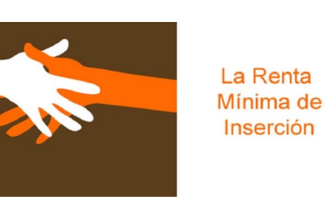Manage Debts Effectively
Debt in itself is not necessarily negative, as it can be a useful tool in achieving important financial goals, such as purchasing a home or investing in education.
It is possible to use strategies and keep your debts under control!
The most crucial thing is to be mindful when getting into debt and avoid being carried away by tempting installment payment offers without considering the long-term consequences.

If you have already found yourself in this situation, you should know that you are not alone in this financial challenge, as many people face high levels of debt. But how can you avoid falling into this trap?
Know your current financial situation
Create a financial plan in which you can write down all your expected personal income, such as salary, and your expenses, such as rent, utilities, food and transportation, distributed over monthly periods.
Know the total value of your debts and make sure you can pay them. If you are not sure of your ability to pay, even after writing down all your monthly income and expenses, avoid taking on more debt.
Prioritize needs over wants
Don't be tempted to take out loans or use credit cards to maintain a lifestyle that is far beyond your means.
Before taking out a loan or using your credit card, ask yourself if you really need that item or if it's just a whim.
Consolidate your debts in one place
When you have debts spread across different cards and banks, interest rates vary and payments arrive at different times of the month.
This can lead to you not having a clear view of how much you are spending and paying on debt each month.
By consolidating your debts in one place, you get a unified view of your financial obligations and can make more informed decisions.
By being aware of your real needs and organizing your debts in a centralized way, you can establish a clear plan to pay them off.
Beware of long-term payments
When you're offered the option to pay with credit, especially over longer terms like 12, 24 or 36 months, it's easy to fool yourself into thinking you're spending less money each month.
This illusion can turn into a huge financial trap. For example, if you decide to buy a product and pay for it in 24 monthly installments, at the end of the period you might discover that the total cost paid is significantly higher than you expected due to interest rates.
To avoid this trap, opt for payment terms that align with the item's lifespan and avoid endless installment purchases.
Evaluate the discounts carefully
Saying “no” to deals can be a challenge. You may think you’re making a smart purchase, but your mind is influenced by several factors.
Therefore, it is important to control your emotions when buying on credit, as sometimes the interest exceeds the discount, meaning you will end up paying more than you should.
For example, if you buy a product with a discount of 20% and pay it off over 12 months with an interest rate of 2% per month, you will end up paying 24% in interest, which exceeds the initial discount.
Plan for the future
It is important to ask yourself if your debts are under control and if you could rest easy if you lost your job for five months, for example.
Remember that a person's financial situation can change at any time, so it is essential to be prepared for it.
It is wise to avoid impulsive purchases and focus on truly necessary expenses.
In short, it's not about avoiding credit or debt altogether, as they can be useful tools in your financial life.
What really matters is understanding the economic environment around you and making informed financial decisions to prevent debt from becoming a negative burden in the future.




